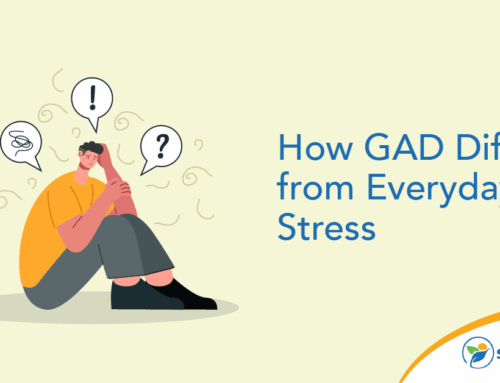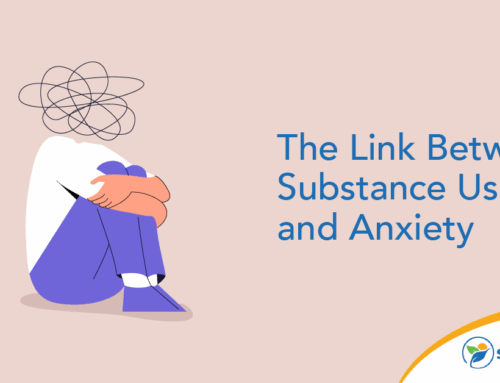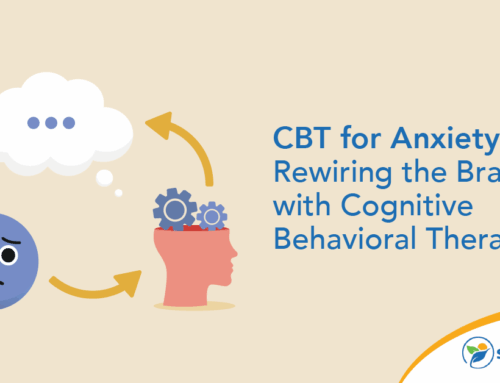Most people fear losing a loved one, and in some cases, such as having a terminally ill family member, this fear is warranted. However, worrying someone may leave or end a relationship without evidence may indicate abandonment anxiety. Although fear of abandonment isn’t a diagnosable mental health condition, it can be a symptom of one and cause intense feelings of anxiety or stress. Understanding the fear of abandonment and what causes it can help you seek necessary support and build healthier relationships.
Understanding the Fear of Abandonment
Fear of abandonment is a persistent concern that people will leave or reject you despite having no evidence. It’s often related to mental health conditions, including borderline personality disorder (BPD), separation anxiety and depression. There are two types of abandonment fear you may experience:
- Physical abandonment. This occurs when an important person is no longer physically present in your life. For example, if a parent or caregiver abandoned you in the past, you may worry a romantic partner will do the same.
- Emotional abandonment. This occurs when a person is physically present but emotionally distant. If you were neglected by a parent or caregiver, you may worry a partner will stop loving or caring about you.
Signs of Abandonment Fear
Abandonment anxiety can cause overwhelming emotional distress, disrupting relationships and making it difficult to navigate daily life. Common behavioral and emotional signs of abandonment fear include:
- Attaching to others quickly
- Panicking or feeling anxious when alone or not coupled
- Failing to maintain long-term relationships
- Being sensitive to rejection or criticism
- Feeling insecure and unworthy of love
- Pulling away physically or emotionally when criticized or thinking a relationship is going “too well”
- Attempting to uncover hidden meanings in a partner’s reactions or behaviors
- Fearing intimacy or closeness
- Finding it hard to trust people
- Aiming to please and putting the needs of others over your own
- Experiencing feelings of general anxiety or depression
Exploring the Roots of Abandonment Anxiety
Fully understanding the fear of abandonment involves identifying the root cause of your anxiety and stress. It often stems from adverse childhood experiences, traumatic situations or failure to form healthy relationships with parents or caregivers.
Childhood Abuse or Neglect
Adverse childhood experiences can cause abandonment issues in adulthood. If a child is neglected, abandoned or physically, emotionally or sexually abused by a parent or caregiver, they may grow up believing they’re unworthy of love. They may also believe others will leave or hurt them and fail to form healthy, intimate adult relationships.
Traumatic Experiences
Traumatic events, such as intimate partner violence or the death of a loved one, can also trigger a fear of abandonment. Intimate partner violence is especially prevalent in women, with the National Coalition Against Domestic Violence reporting 1 in 4 women experiences some type of domestic abuse. A person who’s experienced trauma may constantly seek attention or approval from their partner or fear becoming too intimate or attached.
Insecure Attachment Style
It’s also possible to develop an insecure attachment style if your emotional or physical needs weren’t met by a caregiver. There are three types of insecure attachment styles:
- Avoidant attachment. An individual may cope with abandonment issues by avoiding forming close bonds with others. They may be distant or fearful of commitment and end relationships to avoid conflict.
- Anxious attachment. An individual may become quickly attached to others, forming codependent relationships to cope with abandonment fears. They may seem needy and struggle with being separated from their partner.
- Disorganized attachment. An individual may lack empathy and be uncomfortable with intimacy and closeness. Disorganized attachment is often linked to antisocial, narcissistic and borderline personality disorders.
Mental Health Conditions
Additionally, fear of abandonment is associated with certain mental health conditions, including separation anxiety disorder and BPD. Separation anxiety disorder is one of the most common childhood anxiety disorders, with an estimated prevalence rate of 5% to 25% worldwide. It typically begins around age 6, causing excessive worry, concern or dread at perceived or actual separation from a caregiver.
Extreme abandonment fear is also a common BPD symptom. People with BPD may need frequent reassurance that a loved one won’t leave them and may go to extreme lengths to avoid abandonment and associated thoughts or feelings.
Building Healthy Relationship Patterns
Fear of abandonment can impact how you interact with your partner and perceive their reactions or behaviors. You may struggle with intimacy due to fear of rejection and feel the need to act a certain way to gain approval. Some people may accuse their partner of cheating or attempting to leave the relationship, even though there’s no evidence supporting these claims.
Living with abandonment anxiety or being in a relationship with someone who has it can be challenging. However, there are techniques that can help build healthy relationship patterns:
- Identify triggering behaviors. If your partner displays certain behaviors that trigger abandonment anxiety, voice your concerns without criticizing or accusing them. Your partner may not realize what they’re doing and adjust accordingly.
- Document thoughts and actions. Write down reactions or behaviors that cause abandonment fear. This can help identify fearful or stressful situations and how they affect you, allowing you to develop healthier coping skills to prevent ending the relationship or avoiding your partner.
- Clearly communicate fears or concerns. It’s important for both partners to maintain clear communication within a relationship. The person with abandonment issues should express their fears, concerns and struggles, and their partner should voice when certain behaviors or accusations upset them.
- Pause the conversation when needed. Not all conversations are productive. When feelings are heightened, words can become aggressive or hurtful. It’s better to pause the conversation and return when everyone calms down.
Seeking Support for Overcoming Fear of Abandonment
Many people with abandonment fear aren’t aware of their destructive thoughts and behaviors. Speaking to a therapist can help you identify unhealthy patterns and develop coping skills to avoid damaging relationships. It can also help you process trauma or underlying mental health conditions that may be contributing to abandonment issues.
At Sunlight Recovery, we’re equipped to treat numerous mental health disorders, including anxiety, depression, personality disorders and post-traumatic stress disorder. Don’t wait to seek help. Contact us today to explore our treatment programs and take the first step toward a healthier, more fulfilling life.







